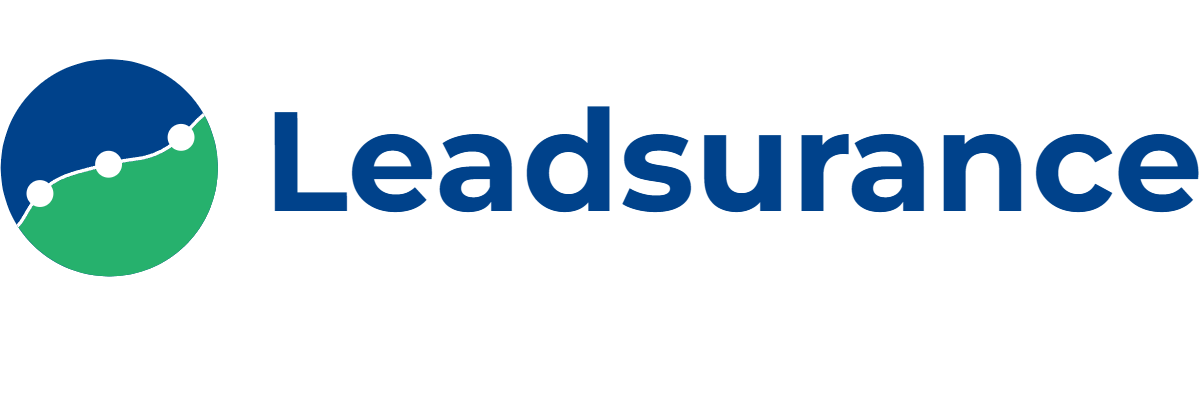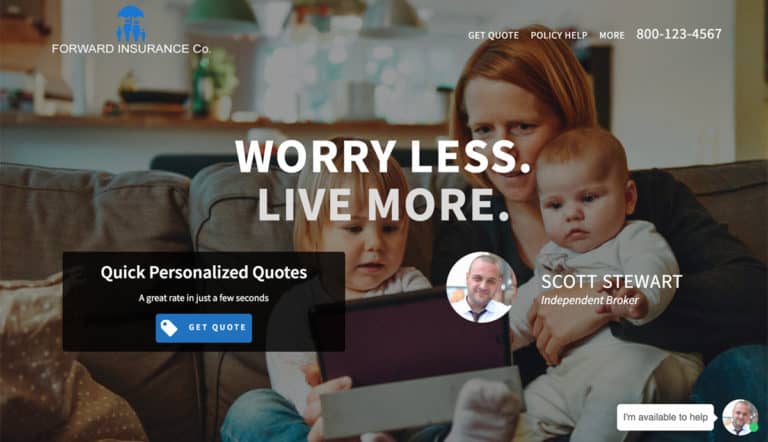A career as an independent insurance agent is an appealing prospect for both budding and established professionals. It is a popular career choice because of the flexibility and freedom to curate your client base.
The requirements put in place to regulate insurance agents vary from state to state. However, fulfilling all the set regulations take a significantly shorter time than the other professions that require a license to operate.
So, how long exactly does it take to become a licensed independent insurance agent? Most focused and dedicated agents took only a few weeks to become licensed to sell insurance.
One way of becoming certified is to take an online course. The course requires that one take a fixed number of study hours before sitting for an examination.
Your determination to complete the required study hours will, therefore dictate how soon you’ll be licensed.

After sitting for an exam, add another week or two waiting times. This period is for background checks to be completed.
Nine Steps to Start an Independent Insurance Agent Business
If you have made up your mind to jump into the busy world of insurance sales, follow these steps to start your own business.
Get Education
Attend college and get a degree in business and finance-related subjects such as;
- Economics
- Mathematics
- Business
- Accounting
- Business administration
- Business law
- Finance
- Marketing
A college degree will make it much easier for you to join this field as an insurance agent. Some colleges now offer a bachelor’s degree in insurance studies.
Decide on the Kind of Agent You Want to Be
We already determined that you want to be an independent insurance agent. However, it is worth examining the two kinds of insurance agents in the business for the sake of discussion.
Captive Insurance Agent
This type of agent works for only one company. This sole company is usually a major national carrier.
The insurance company supports the agent by providing training and marketing channels.
In return, the company makes the agent sign a non-compete and a contract to market their products exclusively. The contacts are effective for the specified time.
The commission percentage is inversely proportional to the company’s marketing support—the more the help, the lower the payment rates.
Independent Insurance Agent
An independent insurance agent, on the other hand, works with more than one insurance company.
The independent agent provides the client with multiple insurance quotes regardless of the insurance company. This way, they can discuss and agree on the best price and coverage.
As an independent agent, you will have a lot of freedom to choose the products you market to clients. This flexibility comes at the cost of receiving minimal support from insurance carriers.
Agents must therefore work hard to build their brand in the market as well as carve their niche. The fact that they have to build and publicize their brand on their own makes the initial steps of becoming an insurance agent more challenging.
What Insurance Products Do You Want to Sell?
There are numerous personal and commercial insurance policies.
Personal insurance focuses on coverage for families and individuals. The insurance covers reduce risks in the lives of individuals by covering:
- Life Insurance
- Motor vehicles Insurance
- Home insurance
Commercial insurance policies cover businesses with general liability insurance policies to property insurance, alongside errors and omissions.
Comply with the state licensing requirements
It is important to decide on the products you want to sell before you begin getting a license. Knowing what your business wants to sell will guide you to choose the right license.
The names of the licenses vary depending on the state you live in. However, the most common license categories are the following two:
- Property and Casualty license – This is for independent insurance agents who want to serve consumers that need a home, auto, or business insurance.
- Life, health, and accident lease – This is for insurance agents who plan to insure a client base that needs insurance cover for life events, such as life insurance, health, or accident insurance.
Becoming an independent insurance agent may require that you apply for multiple licenses. The specific license requirements are easily available from your state’s insurance licensing department. Alternatively, the company you plan to work with can help you with that information.
Why is licensing insurance agents necessary?
- It is the only way for them to market the insurance policies or complete a transaction on behalf of the client.
- It is illegal to operate without a license. Should you do that, you are liable to penalties or even jail time depending on the state you live in.
Take the Licensing Exam
Many states require that you finish a pre-licensing course before you sit the exams. These classes can either be taken online or through a physical classroom.
The course requirements also vary from one state to the other. It could simply take a one-day class or 20-40 hours of online classes.
To sit for the actual exam, you need to meet all the pre-exam stipulations then schedule a date for the official insurance exam. An outside company normally proctors the exams.
On the scheduled day, you will have to go to the venue on time. The test will be online. However, before you are allowed to sit, you may need to show proof that you undertook all the training classes.
What should you expect during the insurance exam?
- This exam is not difficult, especially if you are prepared by taking classes and any other pre-exam requirements.
- You will be expected to arrive at the allocated time, and you will be given a computer and a desk.
- The test questions in this exam come in a multi-choice format.
- When you have finished answering all the questions, you will find out immediately if you have passed.
- If you don’t pass the test in that sitting, you can reschedule a retake later.
Submit a Licensing Application and a Background Check
If you pass your insurance licensing exams, the next step is the submission of documents. The state licensing department accepts insurance licensing applications.
Some states also require that you submit a background check. Fingerprints may be part of this.
Once you receive an official license from the department, you are legally cleared to consult on and sell insurance products.
Get Appointed to Sell Insurance Products
So you have your license and are ready to sell some covers? The next step for you is to get appointed by an insurance carrier. To be appointed is to get authorized by an insurance company to sell the insurance products on their behalf.
Apply and submit your application to insurance companies you are interested in working with. You will then be granted the appointment and binding authority. This will be recorded in your insurance license from the state.
Find and Maintain Clients
At this stage, you are pretty much set to start operating your business. You have the practicing license and binding authority from various insurance companies. All you need next is clients.
Most new agents usually benign prospecting within their close circle of friends and family. This gives the agents some practice and boosts their confidence to market their products.

To earn more clients, break out of your comfort zone, and explore other marketing avenues such as:
- Creating a website and social media pages to generate an online presence
- Advertise on local publications, television, radio among others
- Join the local chamber of commerce
There are multiple ways that you can market your new agency. It will take some trial and error, but you will eventually figure out the most effective marketing method.
Insure your business
Do not insure other people’s lives and business and then forget about yourself. Your new independent agency needs a commercial insurance cover. Some insurance policies you should consider are:
- General liability insurance to protect you from claims such as bodily injuries within your premises. A client getting injured in your office, even accidents, can result in a liability claim. General liability insurance is often combined with commercial property insurance at a discount.
- Errors and omissions (E&O) is a mandatory requirement by insurance companies whose policies you want to market. This policy exists to protect your clients against errors that may be made by you or your staff.
- Workers’ compensation policy protects your agency from claims that may be made by your employees. For example, in case an employee sustains an injury at work, it will pay their medical bills and some lost wages.
If your agency only has part-time workers, you still need to have a part-time worker’s compensation cover. It is a mandatory requirement in most states.
Continue with Your Education
You now have your business up and running, licensed, insured, and getting clients every day. Do not give in to the temptation of falling back into your comfort zone.
Keep yourself updated with the latest industry developments. Keep taking education courses as well. State regulations require that insurance agents must take re-licensing courses every two years.
Skills Every Independent Insurance Agent Must Have
- As an independent insurance agent, it is crucial to be enthusiastic about your job.
- You must have excellent people skills.
- Your marketing skills must be top-notch and innovative to attract clients.
- You must exude confidence so that clients can trust you and your products.
- A good agent is flexible to accommodate the needs of various clientele.
- Insurance agents should be disciplined and able to work well with minimal supervision.
- They must know a range of financial services and sales.
- An agent must keep abreast of news about government benefits strategies, tax laws, and any other new regulations that will affect the insurance profession.
- Independent agents possess strong analytical skills. This is useful when you need to evaluate a client’s needs to determine the most suitable insurance policy for clients’ needs.
The Advantages of Being An Independent Insurance Agent
A career as an independent agent is rewarding in the following ways:
- They have greater product offerings and happier customers. The customers are free to choose from the multiple choices provided to them. You can only provide this variety to your clients if you are not restricted to marketing on a single company’s products.
- Independent agents have a choice on the insurance carriers they want to work with. This allows you to tailor your products according to the needs of your clients.
- As an independent agent, you have the freedom to choose your flexible working hours. You do not have to stick to the normal 9 to 5 work routine. You are your boss, and how often you want to work every week is up to you.
- As an agent, your working schedule is unique to you. Keep in mind that what works for your colleague may not work for you. You can choose to restrict yourself to a 40-hour week or relax with week-days only meetings.
- Independent agents get the privilege to enjoy the complete support of an FMO, a field market organization. FMOs offer additional marketing resources that your carrier may not be able to provide; examples include additional training, marketing platforms, webinars, etc.
- An independent agent’s commission rates remain the same and even potentially increase, unlike captive agents whose earnings remain constant and rates depreciate over time regardless of their performance.
How to Be a Successful Insurance Agent
There are several tips that will help you to be a successful Insurance Agent.
First of all, be patient and commit to the career path. Your success shouldn’t be measured overnight, allow yourself sufficient time to meet your goals. Setting realistic and attainable goals will be crucial to your success.
As an insurance salesperson, you need to always think of new ways to attract, engage, and retain customers. Building relationships and staying top of mind will be crucial to your success as an insurance agent.
Consistency will be key to your career. As a salesperson, you will need to be very consistent in the actions you take to manage your relationships and run your business. Consistency will lead to more sales and higher earnings over time.
How Much Do Independent Insurance Agents Make?
To fully understand how much independent insurance agents make you need to break down the numbers into segments.
- Top Earners: $110,000 Annual Salary ($9,166 Monthly Salary)
- 75th Percentile: $100,000 Annual Salary ($8,333 Monthly Salary)
- Average: $72,499 Annual Salary ($6,041 Monthly Salary)
- 25th Percentile: $43,000 Annual Salary ($3,583 Monthly Salary)
What Does an Independent Insurance Agent Do?
As an Independent insurance agent, you work for yourself, in an office in which you are the boss. You are independent of any one insurance company and have the freedom to choose which companies you will work with. You can be an agent for many companies or a sole agent for one company. You can choose to represent one product or many. You will be responsible for not only selling insurance but also for reviewing clients’ insurance needs to determine what products best suit their situation.
The responsibility of an independent insurance agent is to help individuals and small businesses select, price, and purchase insurance for the risk they are trying to cover. They often shop for and compare different companies, and then help consumers make the most informed decision when it comes to insurance. They are usually paid on commission from the insurance company, which means that their success is reliant on the insurance companies they work with.
Conclusion
When you become certified as an independent insurance agent, you will experience the freedom of providing excellent services. You have the chance to treat your clients well and earn a living while at it.
The joy and freedom that comes from this career are unparalleled. If you had doubts about it, now is the time to change your mind. While this career has the benefit of flexible hours and a high income, you must understand there is work involved. Becoming successful means some long nights, putting yourself out there, and continual training. If you feel like that you are up to the task, get the process started today.






